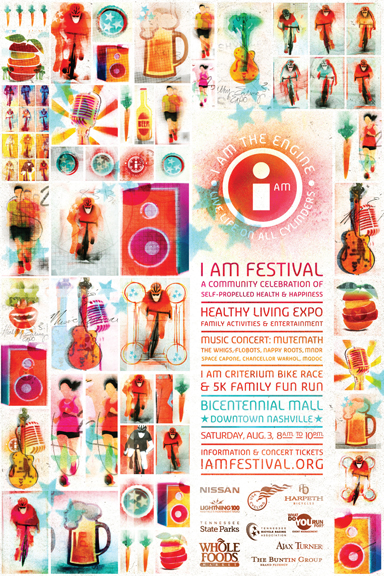OZONE PREDICTED TO REACH UNHEALTHY LEVELS TOMORROW
NASHVILLE, Tenn. – An ORANGE level Air Quality Alert for ozone has been issued for Middle Tennessee for TUESDAY, AUGUST 5, 2014. This is the first Air Quality Alert of the 2014 ozone season, which is unusual for the Middle Tennessee area where Air Alert Season officially begins in April.
“Cooler than average temperatures for most of the summer helped keep the air quality in check,” said Becky Taylor, CAP Program Director. “But with hot dry weather moving into the area, this air alert was not a surprise.”
The Air Quality Alert means that the Tennessee Department of Environment and Conservation (TDEC) is forecasting tomorrow’s ozone levels to be unhealthy for sensitive groups. People with lung disease such as asthma, children and older adults, and people who are active outdoors should limit prolonged exertion outdoors tomorrow.
“Children are especially susceptible to ozone because their lungs are still developing and they breathe more for their body size compared to adults,” said Melissa Stevens, CAP Communications Director. “We recommend trying to limit children’s strenuous outdoor activity tomorrow. The same is true for adults who like to exercise outside.”
To help lessen the effects of tomorrow’s ozone levels, the Clean Air Partnership of Middle Tennessee encourages citizens to incorporate smarter driving habits into their daily routines.
“Ozone is a very reactive pollutant, so individuals can actually help reduce the ozone tomorrow by making a few simple changes,” said Stevens. “We recommend trying your best to reduce your driving — take public transit, avoid driving during peak traffic periods if you can, and skip the drive thru at fast food restaurants and banks.”
The Clean Air Partnership is urging citizens to consider taking the following steps on Air Quality Alert days:
- Carpool or take the train or bus at least once a week and on air alert days.
- Combine errands into a single trip, and reduce or postpone trips in your car.
- Reduce idling: Schedule your day to avoid driving during peak traffic times, and skip the drive-thru and go inside.
- Refuel your car after dusk, when it’s cooler and ozone production has tapered off.
- Postpone the use of gas-powered lawn equipment until the air quality improves.
About Ozone
Ozone is a gas created from chemicals in the air that react in the presence of heat and sunlight. Ozone pollution is more prevalent in the summer months because the strong light from the sun “cooks” the chemicals emitted by cars, power plants, chemical plants and other sources. Cars and trucks commuting to and from metropolitan areas are a major source of the ozone problem. The emissions from thousands of cars – paired with warm weather – lead to Air Quality Alert days and diminished air quality.
About the Clean Air Partnership of Middle Tennessee
The Clean Air Partnership of Middle Tennessee is a nonprofit organization focused on air quality in the eight-county area that falls under the Nashville-area Early Action Compact agreement (Cheatham, Davidson, Dickson, Robertson, Rutherford, Sumner, Williamson and Wilson counties). CAP works to encourage lifestyle changes by promoting concepts like carpooling, mass transit and regular car maintenance. From issuing Air Quality Alert notices to matching rideshare partners, CAP is a one-stop information source connecting people with the resources they need to make smart transportation choices. Visit the Clean Air Partnership at http://www.itscleartome.org.
